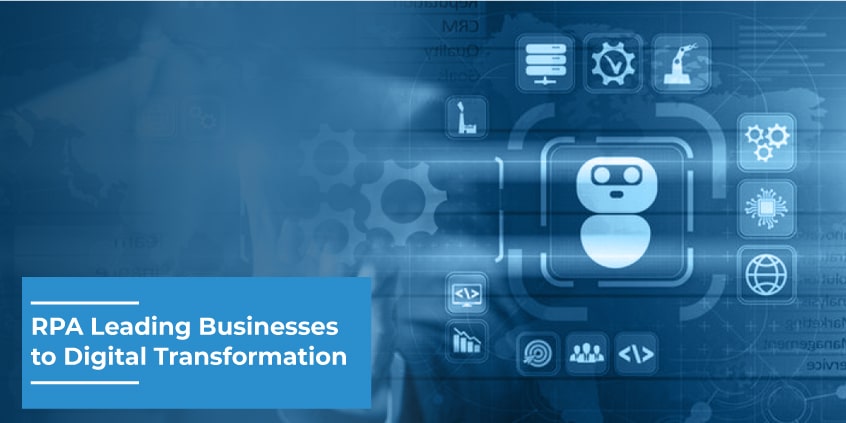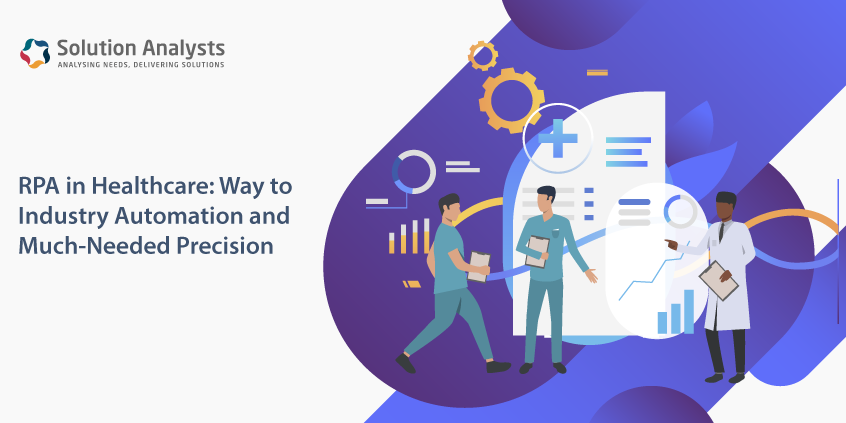
Table of Contents
When we say robotic process automation, a digital novice could, in all likelihood, conjure up an image of a machine rising to conquer humankind with precision and machine-like efficiency. However, this is far from the truth – except for the machine-like efficiency.
Robotic process automation has nothing to do with an actual robot – in the physical sense – but a business process automation software that works with the speed and precision of a machine.
But what is robotic process automation, and why is it being discussed extensively in digital and business circles.
What is Robotic Process Automation?
Robotic Process Automation is a technology that builds and deploys software robots that mimic human-computer interactions. The possibilities with robotic process automation solutions are endless. However, this technology is about automating tasks and performing tons of processes at high-speed error-free precision.
In simpler terms, RPA refers to instructing a robot or a bot to complete everyday repetitive tasks. For example, you can train a software robot or bot to emulate human actions such as understanding things on a screen, extracting information, navigating complex systems, etc.
RPA uses advanced technology and tools such as computer vision, machine learning, artificial intelligence, chatbots and more. So, a bot uses a combination of these technologies to automate and perform high-volume tasks that are highly repetitive and rule-based.
How does it create value for Businesses?
1. Boosting performance
RPA can bring about enterprise-level changes by bringing network systems together and improving efficiency. With RPA, your business can achieve digital transformation Solutions from the top managerial level to each employee level.
2. Reducing costs
As a business, you spend a considerable amount of money running mundane, repetitive jobs. The average global time spent doing the same tasks is 4 hours and 38 minutes per week. When you convert the time into money and resources, you will understand why there is a scope for automated processing.
With RPA, you can reduce operations costs and develop a cutting-edge system that allows you to concentrate on skill-enhancing tasks, identify talents, and transfer the knowledge base to the next generation.
3. Upskilling the workforce
Since RPA helps the organization with its digital transformation efforts, it is possible to upskill the employees on various skill sets cost-effectively.
4. Accelerate business transformation efforts
RPA pushes the DX strategies of businesses. In a report, more than 79% of the respondents were converting their old legacy systems and cumbersome processes with RPA as it bridges the automation gaps.
Also Read : Importance of Digital Transformation Solutions for Modern Industries
5. Enhanced accuracy
One of the top-line benefits of RPA is enhanced accuracy and efficiency because it does away with manual errors. 51% of respondents in a survey believed that RPA demonstrated increased work efficiency, accuracy and effectiveness.
6. Improved compliance
According to a report by Statista, robotic process automation made it possible for the system to be more compliant, with 38% of the respondents associating RPA with audit, compliance and visibility.
7. Happy customers and happier employees
In a report by Forrester Consulting, one of the top benefits of RPA adoption is better customer service (85%). However, enhanced customer satisfaction could also be attributed to employee engagement, with more than half the respondents agreeing that employee engagement is a top benefit of RPA.
8. Automate customer service workflow
Since RPA is a part of the business’s greater digital transformation efforts, it helps the organization gather and share information. In addition, it helps customer service move in the right direction towards predefined criteria by analyzing chunks in the workflow.
9. Streamlined data entry
Data entry is perhaps the biggest, time-consuming critical task that is performed by every organization regardless of its products. Therefore, it becomes important for data-intensive operations such as healthcare and banks to have a flawless data entry procedure. With automation, it is possible to achieve near-perfect quality in data entry.
10. Scale up to demands quickly
The demands of an organization can increase as dramatically as possible, and an automation system is only as effective as its capabilities to scale. Most Robotic process automation services have no qualms in scaling to the future needs of any system, and it can perform just as efficiently as ever.
How is RPA Digitally Transformative?
Businesses should make robotic process automation a part of their digital transformation strategy simply because it completely alters how they get their work done.
RPA robots do the manual, repetitive tasks such as logging in files, extracting and copying documents, filling in forms, working out routine reports and moving folders – something that your employees have been consistently doing.
Although critical to the functioning of a business, these labor-intensive processes do not add value to the employee’s skill and experience. Advanced software bots can also perform cognitive tasks, making it easier for employees to focus on upskilling, innovating, and creating enriching tasks.
With RPA, organizations will be able to tackle large-scale back-office operations at a fraction of the time usually taken by employees and with greater efficiency.
Additionally, when advanced technologies like Big Data and Artificial Intelligence are combined with RPA, the results could help the business gain insight into the business process and performance.
By emulating employees’ actions, the RPA bots can work seamlessly alongside legacy software and ERP solutions without investing or implementing other systems.
Although it can’t accurately predict the future in terms of advanced technologies, we can be certain that your DX strategy holds the key to the foreseeable future. And with robotic process automation solutions, you could push your digital transformation efforts a notch higher.












 sales@solutionanalysts.com
sales@solutionanalysts.com biz.solutionanalysts
biz.solutionanalysts






